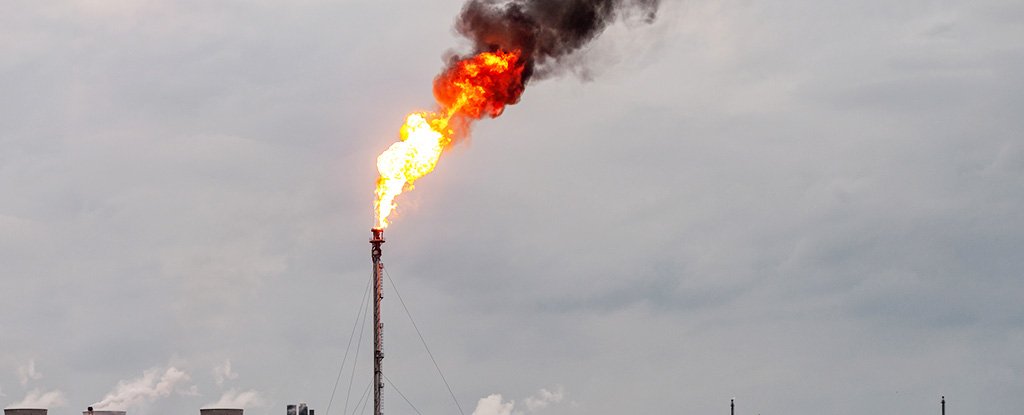
The United Nations warned Monday that greenhouse gas concentrations reached record levels in the atmosphere last year. This stark warning came as Boris Johnson, Britain's prime minister, admitted to being "very concerned" about the COP26 summit.
As Prime Minister Johnson, the COP26 host said that it was "very, very difficult to see that we'll make the progress we need", the UN has released a blunt report about rising global warming.
Johnson stated that he was worried about the possibility of it going wrong, but he is optimistic that a deal will be reached at the climate talks over the next 12 days to limit carbon emissions and prevent future temperature rises.
The coal-intensive Australia, which is facing many challenges, unveiled Monday a long-awaited target for 2050 to achieve net zero emissions. It also rejected any plans to increase its 2030 targets.
Scott Morrison, conservative prime minister, stated that "we want our heavy industries like mining to remain open, remain competive, and adapt, so that they remain viable for the length of global demand allows."
COP26, UN Climate Change Conference is held in Glasgow, from October 31 through November 12.
According to the UN's World Meteorological Organization, continued increases in greenhouse gas emissions will lead to more extreme weather conditions and broad-ranging effects on the environment and the economy.
According to the WMO, the COVID-19 pandemic caused an economic slowdown that led to a temporary drop in new emissions but had no impact on the atmospheric levels or growth rates of greenhouse gases.
According to the Greenhouse Gas Bulletin, the organization said that the annual rate was higher than the average for the years 2011 through 2020. The trend will continue in 2021.
Way off the track
According to the WMO, as long as global emissions continue, global temperatures are expected to continue rising.
Given the long-term life span of carbon dioxide (CO2) temperature levels will continue to be observed for many decades, even if emissions are reduced rapidly to net zero.
Petteri Taalas, chief WMO, stated that the Greenhouse Gas Bulletin has a clear message for climate change negotiators attending COP26.
He warned that "at the current rate of greenhouse gas concentration increase, we will see temperature rise by the end this century far beyond the Paris Agreement targets 1.5 to 2 degrees Celsius above preindustrial levels."
"We are far off the track."
According to the WMO, more extreme weather could be expected if greenhouse gas emissions continue to rise and temperatures rise.
"We must reexamine our industrial, energy, and transport systems as well as our whole way of living. Taalas stated that the changes needed are technically feasible and economically possible. "There's no time to waste."
WMO stated that the deforestation has made the southeast region of the Amazon rainforest a source of carbon emission. This is alarming.
The disaster is closer
Three major greenhouse gases are CO2, methane, and nitrous oxide. The most important greenhouse gas, CO2, accounts for approximately 66 percent of climate warming.
The 2020 CO2 concentrations were 413.2 parts per Million (ppm), an increase of 2.5 ppm and at 149 percent of pre-industrial levels in 1750, according to the WMO.
Average methane levels reached 1,889 parts/billion in 2020, an 11-ppb increase over the previous year, and are 262 percent below the preindustrial benchmark.
Average nitrous oxide levels reached 333.2ppb, an increase of 1.2ppb and are now at 123 per cent of 1750 levels.
Euan Nisbet from the University of London's Greenhouse Gas Group compared greenhouse gas measurements to "skidding into car crashes."
The disaster is getting closer, but it's impossible to stop it. The crash is clearly visible, and you can only howl.
Director of the Edinburgh Climate Change Institute Dave Reay said that the report was a "brutally frank assessment" of COP achievements to date: "An epic failure."
According to an analysis by the Organization for Economic Co-operation and Development, it is possible to achieve in 2023 the ten-year-old goal for rich countries of contributing US$100 billion per year to aid poorer nations fight climate change.
The goal was supposed to be reached last year. This has made the failure of developed countries to achieve it a major point of contention going into Glasgow.
Saudi Arabia's defacto ruler has pledged over US$1 Billion for new environmental initiatives Monday. This is in addition to taking steps to improve the environmental credentials of the world’s largest oil exporter.
Two days after pledging to achieve carbon neutrality by 2060 Crown Prince Mohammed bin Salman said that he would contribute 15% of US$10.4billion to the "circular carbon economy" as well as provide "clean fuel" for the feeding of 750 million people around the world.
Agence France-Presse
